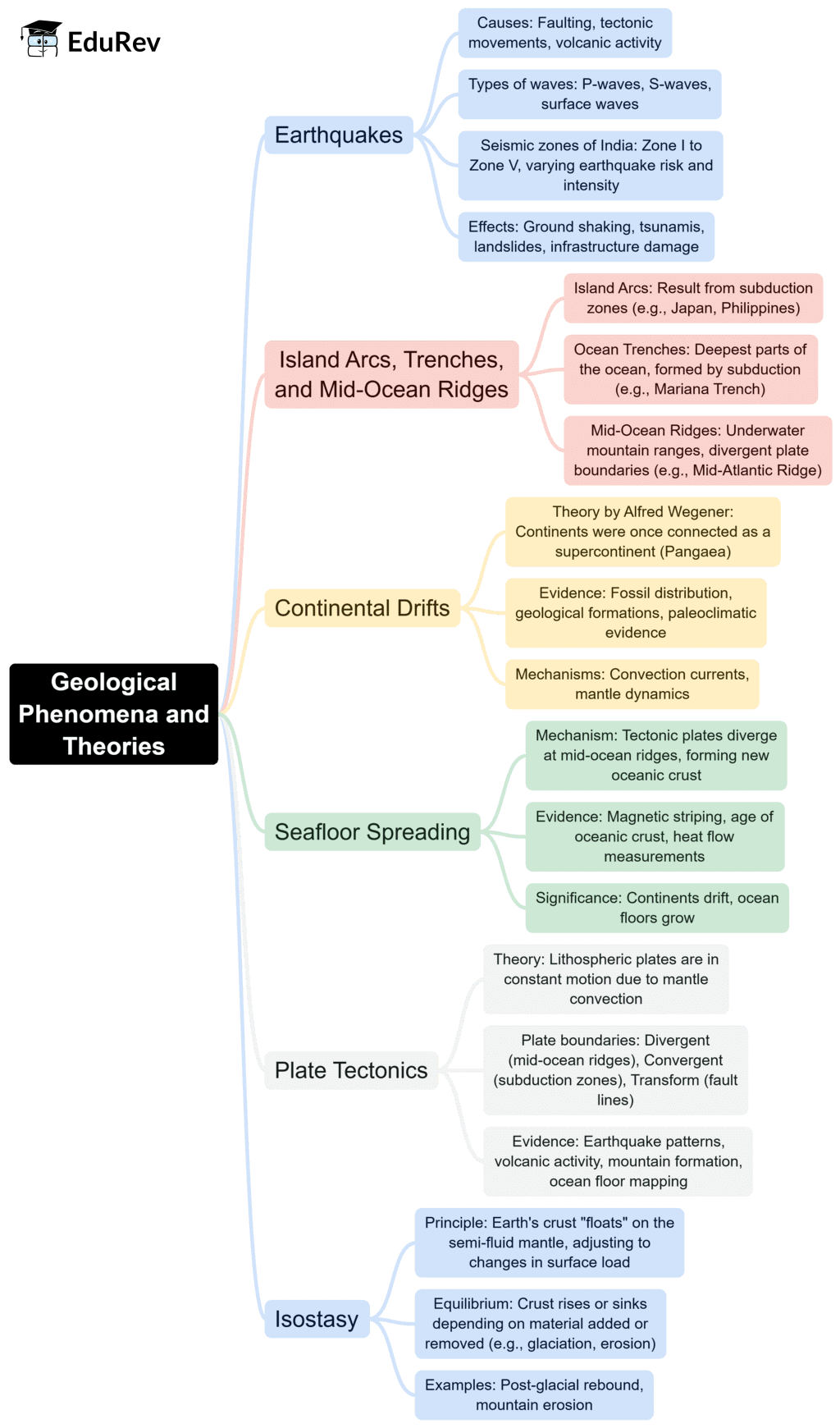UPSC Exam > UPSC Notes > Geology Optional for UPSC > Mind Map: Geological Phenomena and Theories
Mind Map: Geological Phenomena and Theories | Geology Optional for UPSC PDF Download

The document Mind Map: Geological Phenomena and Theories | Geology Optional for UPSC is a part of the UPSC Course Geology Optional for UPSC.
All you need of UPSC at this link: UPSC
|
64 videos|135 docs
|
FAQs on Mind Map: Geological Phenomena and Theories - Geology Optional for UPSC
| 1. What are the main branches of geology that are relevant for UPSC preparation? |  |
Ans. The main branches of geology relevant for UPSC preparation include Physical Geology, Historical Geology, Mineralogy, Petrology, Geochemistry, Sedimentology, and Structural Geology. Each branch focuses on different aspects of the Earth's composition, structure, processes, and history, providing a comprehensive understanding of geological sciences.
| 2. How does plate tectonics influence geological formations? |  |
Ans. Plate tectonics is the theory that explains the movement of the Earth's lithosphere, which is divided into tectonic plates. This movement can lead to various geological formations, such as mountains, earthquakes, and volcanoes. For instance, the collision of plates can create mountain ranges, while divergent boundaries can lead to the formation of new crust through volcanic activity.
| 3. What are the types of rocks studied in geology, and how are they classified? |  |
Ans. Rocks are classified into three main types: igneous, sedimentary, and metamorphic. Igneous rocks form from the solidification of molten material, sedimentary rocks are formed from the accumulation of sediments, and metamorphic rocks arise from the alteration of existing rocks due to heat and pressure. Each type provides insights into the Earth's history and processes.
| 4. Why is understanding soil composition important in geology? |  |
Ans. Understanding soil composition is crucial in geology because it affects agriculture, construction, and environmental management. Soil properties influence water retention, nutrient availability, and erosion rates, impacting land use and sustainability. Geologists study soil to assess geotechnical properties and to understand past environmental conditions.
| 5. What role do fossils play in the study of geology? |  |
Ans. Fossils play a significant role in geology as they provide evidence of past life and environmental conditions. They help in dating rock layers, understanding evolutionary processes, and reconstructing ancient ecosystems. Fossils are vital for correlating geological time and can indicate the age of the rocks in which they are found.
Related Searches





















